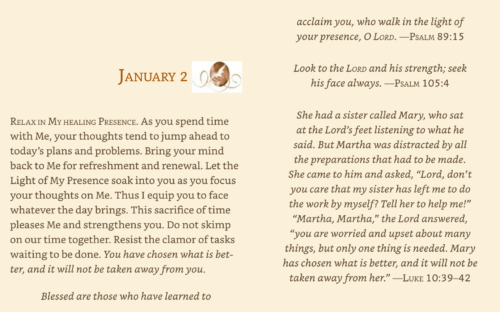Choosing the Prophetic Path
On this New Year’s Day, we invite you to explore the theme for this year’s Daily Meditations: The Prophetic Path. We begin with Father Richard’s understanding of the theme and what it means to him:
Our Daily Meditation theme this year is called The Prophetic Path, and I don’t think it’s an accidental phrase. I offer it in contrast to what most of us were trained to think of as Christianity in general—not as a prophetic path, but as a contest, which immediately frames reality in terms of win-lose, winners and losers. The prophetic path says there’s a way of moving toward winning that includes losing. It doesn’t exclude it. Can we see the genius of that? It’s what you’ve often heard me call perfection as the inclusion of imperfection. Sin is part of the journey towards salvation. Once you hear it, I hope you can say, “Of course, that’s obvious!”
Most of us prefer the language of courtroom and judgment and contest, where there are a few winners and lots of losers. This has not served history well. The prophetic path talks about a journey of two steps forward that necessarily continues to include one step backward. That falling, that failing, that suffering—use whatever word—becomes the energy for the next two steps forward. This is wisdom literature as opposed to contest literature. We’re going to use the meditations this year to try to illustrate that the Christian way is a prophetic path. [1]
Father Richard has long described the prophets as those who offer a “third way” beyond competitive, us-and-them thinking:
There is a third way beyond fight or flight, conservative or liberal, and it probably is a way of “kneeling.” Most people would just call it “wisdom,” which is always distinguished from mere intelligence. It demands a transformation of consciousness and a move beyond the dualistic win/lose mind.
We come to this “third way” of the prophetic path only over time. In the words of W. H. Auden, “For the garden is the only place there is, but you will not find it / Until you have looked for it everywhere and found nowhere that is not a desert.” [2] The gospel accepts this essentially tragic nature of human existence; it is willing to bear the contradictions that are imprinted on all of reality. It will always be a road less traveled. Let’s call it “unstable stability”! But for some reason, it is only the real stability, because it is a truthful map of reality, and it is always the truth that sets us free. It is contact with Reality that finally heals us. And contemplation, quite simply, is meeting reality in its most simple, immediate, and contradictory form. It is the resolving of those immense contradictions that characterizes the mystics, the saints, the prophets, and all those who pray. The result is always a “third something.” [3]
A Journey to the Heart of God
For Father Richard, the power of the prophetic path lies in the tradition and example of the Hebrew prophets. In this excerpt from a series recorded in 1980, Richard describes how a prophetic imagination keeps the church and our faith alive:
In many ways, I think part of the explanation for perhaps the powerlessness of much of modern Christianity has been that it has lost touch with the Hebrew Scriptures. In particular, we have lost touch with the prophets. When we lose the sense of the prophets and their vision, we enter into a very overly spiritualized interpretation of Christianity. The prophets kept the word of God earthy. They kept it whole. They kept it real. They would not let us divide earth from heaven. They put heaven and earth together and they said, “It’s all one.”
The prophets speak out of a deep experience of God. It seems, somehow, that they’ve entered into the heart of God. They’re bold enough and brazen enough to almost dare to say, “I’ve seen God. I know what God thinks. I’m going to tell you what God thinks.” It takes a strange kind of self-confidence, and even inspiration, to be able to speak with the self-assurance of the Jewish prophets. I think what they give us are, among other things, new images. They give us new images by which we can capture and grasp reality. It seems that a failure of the modern church, maybe of the church in every age, has been a failure of imagination. The prophets explode our imaginations if we can learn how to listen to them and learn to understand the images and metaphors with which they speak.
Imagination is largely a matter of being able to re-image life in new ways. It is not to be caught or trapped in old images of hopelessness. When we’re trapped in old images, we keep living out of them, fighting against them, resisting them, and even saying they don’t work. But it seems we are incapable oftentimes of creating or even accepting new images and living out of those new images.
The prophets give us a sense of the possible. They give us a sense of the impossible, too. That’s why, frankly, they are so hard to listen to—because they explode our minds and push back the limits of our imagination. They increase our capacity to feel. They intensify our capacity for suffering. That’s why people don’t want to listen to them, because prophets increase our ability to feel what God is feeling. To feel God’s pain, God’s desire, God’s longing, and even God’s anger, if you’ll allow.
The prophetic path is a journey into the heart of God.
